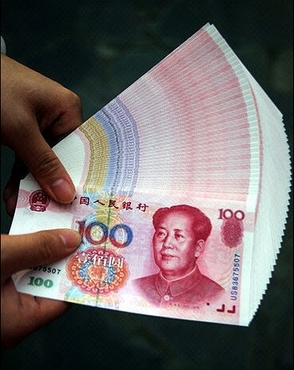Two years have passed since a state-sponsored cyber-attack caused one of the largest data breaches in U.S. history, and it appears that a foreign government may once again be on the verge of gaining access to a treasure trove of sensitive American information.
For those short of memory, I’m referring to the Office of Personnel Management (OPM) hack where over 21.5 million records were stolen, most likely, by state-sponsored Chinese hackers. The hack, which was discovered in April 2015, included personally-identifiable information such as Social Security numbers, addresses, dates and places of birth and personal financial information.
Instead of using the anniversary as an opportunity to renew the American government’s commitment to protect its citizens from acts of cyber warfare and foreign espionage, it appears that they are instead, inexplicably, considering approval of a transaction that would provide the Chinese a permanent pipeline to the sensitive personal information of millions of Americans.
Ant Financial, a company with close ties to the Chinese communist regime, is currently undertaking efforts to acquire MoneyGram, a leading private U.S.-based payments company. The company, which handles million of private financial transfers every year, could provide the Chinese government with far reaching access to the financial information of countless American citizens.
Rep. Robert Pittenger (R-Texas), a member of the Financial Services Committee, recently echoed these concerns. In an interview with Politico he stated: “If the transaction is approved, China would gain direct access to a significant amount of transactional data in MoneyGram’s network…The data would include names, bank account numbers, as well as the location of MoneyGram customers.”
Given China’s poor record on consumer protections and tendency to act counter to America’s foreign policy and national security interests, our country’s top national security officials need to thoroughly examine this deal and ask the hard questions before making a final decision.
Proximity and access to military bases, for example, is one of the biggest concerns when evaluating foreign takeovers of American companies. In 2009, a Chinese buyer was prevented from buying a gold mine because it was too close to a U.S. military installation. The Ant Financial takeover of MoneyGram pales in comparison.
MoneyGram locations are ubiquitous on or near American military bases and many of their customers include members of the armed forces and Department of Defense personnel. Opening their personal information up to interception or misuse would be tantamount to the SF-86 background check forms, fingerprints and personnel files that were lifted from OPM government servers and could leave key national security personnel vulnerable to foreign espionage or blackmail.
The merger could also significantly impede law enforcement capabilities to beat back terrorism financing, money laundering and other criminal activity. Money transmitters play a key role in preventing the flow of illicit funds. Putting a foreign government at the center of these efforts, at the very least, complicates these efforts and, at the very worst, could put our national security in jeopardy.
Fortunately, safeguards exist to protect American citizens from corporate deals like this that could jeopardize American national security. As the chairman of the Committee of Foreign Investment in the United States (CFIUS), Treasury Secretary Steve Mnuchin directs the panel that will make the ultimate decision whether to approve the merger.
The CFIUS, which is comprised of representatives from a number of different agencies and departments, including the Departments of State, Homeland Security and Defense, exists to review the national security implications of foreign investments in American companies. If the panel finds that the transaction would harm America’s national security, it can block these foreign sales and investments.
President Trump was elected with a mandate to “get tough on China” and a good deal of that responsibility will fall to his administration. During his Senate confirmation hearing this week, Governor Terry Branstad (R-Iowa), President Trump’s nominee to serve as ambassador to the People’s Republic of China, pledged to hold a firm line when dealing with his counterparts in Beijing.
The nominee for U.S. trade representative, Robert Lighthizer, recently said China is “high on high the list of U.S. problems” and has admitted that he believes the country has manipulated their currency in the past. Secretary Mnuchin should adopt a similarly resolute approach when it comes to reviewing the national security implications of any deal between the United States and China.
By asking these important questions when it comes to this proposed Ant Financial and MoneyGram merger, Secretary Mnuchin can demonstrate President Trump’s desire to put America first and “get tough” on China.
. . . . . . . . . . . . . . . . . . . .
Travis Korson is a Senior Fellow with Frontiers of Freedom a public policy think tank devoted to promoting a strong national defense, free markets, individual liberty, and constitutionally-limited government. To learn more about Frontiers of Freedom, visit www.ff.org.
